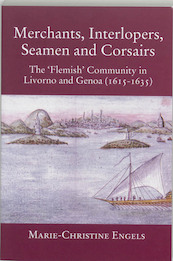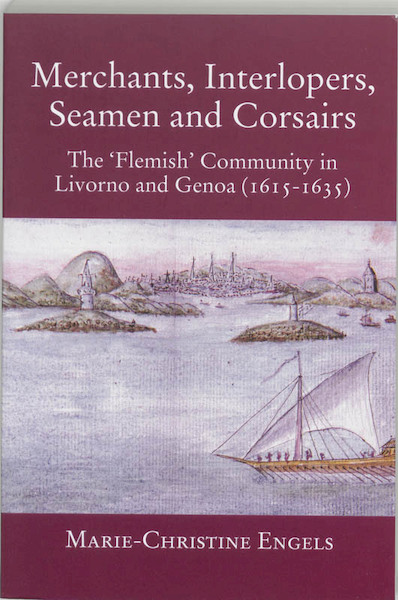| Prijs | € 39,00 |
Niet beschikbaar
Paperback | Januari 1997 |
Beoordeel dit boek als eerste!Beschrijving
Favourable political measures taken by the Grand Dukes of Tuscany regarding the port of Livorno created an ideal distribution centre on the Mediterranean. Among the many foreign merchants settling in the city from 1600 onwards, the 'Flemish' community played a prominent role. The Dutch had a large merchant fleet involved in the intra-European trade at their disposal, and their operating costs were relatively low. As a result, they could offer highly competitive freight rates. Based on various Tuscan, Genoese and Dutch sources Marie-Christine Engels offers an accurate account of the activities of Dutch merchants and seamen in Livorno and Genoa. The shipping of luxury goods was extensive, but not necessarily the pivot of Dutch commercial activities. Shipping and trade of grain and other bulk products, such as fish, remained lucrative. Because risks were high on the Mediterranean, the merchants invested not only in transport and trade, but also in ships, banking and other business. The second part of the book concentrates on the company of the Dutch merchants Joris Jansen and Bernard Van den Broecke, who settled in Livorno around 1616. Their business relations were 'Flemish' merchants in the Dutch Republic and 'Flemish' and local merchants on the Italian Peninsula. The company participated in various kinds of transport and trade. The correspondence of its members indicates that benefiting from the demand at a particular moment offered better prospects than specialisation on luxury commodities alone. In years of food shortage (1620 and 1630) accent was placed on grain, in years of good harvests (1625) on fish. The picture drawn by the business administration of Jansen and Van den Broecke matches with the general picture reflected in the first part of the book. The company therefore excellently illustrates the legal and illegal activities of 'Flemish' merchants in Livorno in the early seventeenth century.
Specificaties
- Auteur
- M.-C. Engels
- Uitgever
- Verloren b.v., uitgeverij
- ISBN
- 9789065505705
- Bindwijze
- Paperback
- Publicatiedatum
- Januari 1997
- Categorie
- Wetenschappelijk
- Taal
- Engelstalig
Beschrijving
Favourable political measures taken by the Grand Dukes of Tuscany regarding the port of Livorno created an ideal distribution centre on the Mediterranean. Among the many foreign merchants settling in the city from 1600 onwards, the 'Flemish' community played a prominent role. The Dutch had a large merchant fleet involved in the intra-European trade at their disposal, and their operating costs were relatively low. As a result, they could offer highly competitive freight rates. Based on various Tuscan, Genoese and Dutch sources Marie-Christine Engels offers an accurate account of the activities of Dutch merchants and seamen in Livorno and Genoa. The shipping of luxury goods was extensive, but not necessarily the pivot of Dutch commercial activities. Shipping and trade of grain and other bulk products, such as fish, remained lucrative. Because risks were high on the Mediterranean, the merchants invested not only in transport and trade, but also in ships, banking and other business. The second part of the book concentrates on the company of the Dutch merchants Joris Jansen and Bernard Van den Broecke, who settled in Livorno around 1616. Their business relations were 'Flemish' merchants in the Dutch Republic and 'Flemish' and local merchants on the Italian Peninsula. The company participated in various kinds of transport and trade. The correspondence of its members indicates that benefiting from the demand at a particular moment offered better prospects than specialisation on luxury commodities alone. In years of food shortage (1620 and 1630) accent was placed on grain, in years of good harvests (1625) on fish. The picture drawn by the business administration of Jansen and Van den Broecke matches with the general picture reflected in the first part of the book. The company therefore excellently illustrates the legal and illegal activities of 'Flemish' merchants in Livorno in the early seventeenth century.
Schrijf een recensie
Specificaties
- Auteur
- M.-C. Engels
- Uitgever
- Verloren b.v., uitgeverij
- ISBN
- 9789065505705
- Bindwijze
- Paperback
- Publicatiedatum
- Januari 1997
- Categorie
- Wetenschappelijk
- Taal
- Engelstalig











